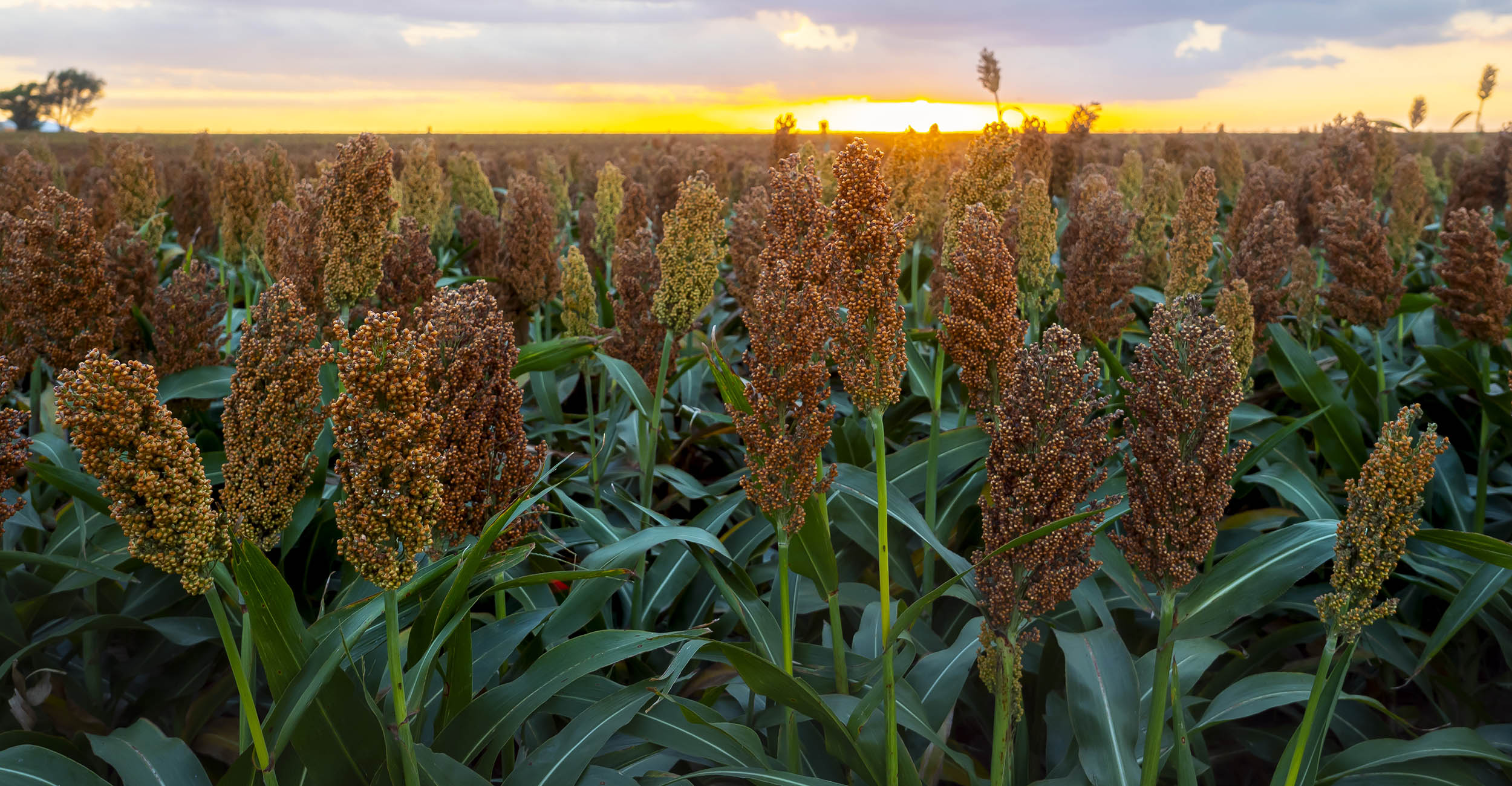Stillwater, Oklahoma, USA
November 2, 2022
 Oklahoma State University researchers will look at how nitrogen management affects nitrous oxide transmissions from sorghum and the impact of nitrogen management on plant physiology as part of the Climate-Smart Commodities Project. (Photo by Todd Johnson, OSU Agricultural Communications Services)
Oklahoma State University researchers will look at how nitrogen management affects nitrous oxide transmissions from sorghum and the impact of nitrogen management on plant physiology as part of the Climate-Smart Commodities Project. (Photo by Todd Johnson, OSU Agricultural Communications Services)
Oklahoma State University researchers have joined Texas A&M University and Kansas State University in a $2 million collaborative research project to develop better nitrogen management practices for producers.
The U.S. Department of Agriculture’s Partnerships for Climate-Smart Commodities project could be allotted up to $65 million with $2 million of the funding going to the research side of the project while the rest will go toward the United Checkoff Program, which will help producers implement better nitrogen management practices and adopt smart technology into their operations.
“We’re all Extension specialists, so basically, that means we take the research straight into the field, and by the end of this five-year project, we will have tools and strategies to put out there that are aimed at increasing nitrogen use efficiency,” said Brian Arnall, Oklahoma State University Extension specialist for precision nutrient management. “All three universities are doing the same base set of treatments and analysis, then we may add some regionally specific ideas on nitrogen management.”
Nitrogen management research is usually conducted in a variety of regions and examines factors specific to the area. Examples include studying specific fertilizers commonly used in Oklahoma or GreenSeeker technology, which reads crop health and uses an N-Rich strip to make precision nitrogen rate recommendations.
“The question is can we protect the nitrogen we’ve applied with products that are in the marketplace to keep nitrogen from being lost?” Arnall said. “What’s nice about this project is many of us are already doing work like this on our own. This just allows a concerted effort to better focus in on management practices that can be adapted across the plains.”
The research will re-evaluate nitrogen management guidelines. Arnall said in most of his research, he evaluates nutrient stabilizers and nitrogen safener technology.
Jason Warren, OSU Extension specialist for soil and water conservation, and Josh Lofton, OSU Extension specialist for cropping systems, will look at how nitrogen management affects nitrous oxide transmissions from sorghum and the impact of nitrogen management on plant physiology.
Lofton said most of the applied research conducted within plant and soil sciences at OSU, whether related to nitrogen or soil health, is connected to climate change.
“In Oklahoma, it’s not necessarily just research to see the top end yield of a crop. Our job is to be focused on our environmental conditions and limit the cost and excessive inputs across the board. We’re focused on putting the right things in the right places at the right time,” Lofton said. “This current project came together because of decades worth of work that wasn’t focused directly on climate change but had it in the background. Now that we have the background information, we can focus on more direct aspects of how the agricultural system and crop is affecting the climate.”
This material is based upon work supported by the Climate-Smart Commodities Project under the U.S. Department of Agriculture. Any opinions, findings, conclusions or recommendations expressed in this publication are those of the author(s) and do not necessarily reflect the view of the USDA.